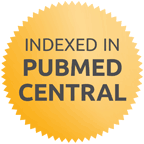Abstract
The aim of this paper is to describe the protocol of a study assessing the impact of a Communitybased pro-Active Monitoring Program, by measuring the effect in counteracting the adverse outcomes related to frailty. Methods: a prospective pragmatic trial will be carried out to describe the impact of an intervention on people aged>80, adjusted for relevant parameters: demographic variables, comorbidities, disability and bio-psycho-social frailty. They have been assessed with the Functional Geriatric Evaluation questionnaire that is a validated tool. Mortality, Acute Hospital Admission rates, Emergency Room Visit rates and Institutionalization rates are the main outcomes to be evaluated annually, over three years. Two groups of patients, made up by 578 cases (undergoing the intervention under study) and 607 controls have been enrolled and interviewed. Results: at baseline the two groups are quite similar for age, living arrangement, comorbidity, disability and cognitive status. They differ in education, economic resources and physical status (that are better in the control group) and in social resources (that is better in the case group). The latter was expected since the intervention is focused on increasing social capital at individual and community level and aimed at improving survival among the cases as well as reducing the recourse to hospital and residential Long Term Care. Conclusion: The proposed study addresses a crucial issue: assessing the impact of a bottom up care service consisting of social and health interventions aimed at reducing social isolation and improving access to health care services.
Recommended Citation
Terracciano, Elisa
(2020)
"ASSESSING THE IMPACT OF A COMMUNITY-BASED PRO-ACTIVE MONITORING PROGRAM ADDRESSING THE NEED FOR CARE OF COMMUNITY-DWELLING CITIZENS AGED MORE THAN 80: PROTOCOL FOR A PROSPECTIVE PRAGMATIC TRIAL AND RESULTS OF THE BASELINE ASSESSMENT,"
Translational Medicine @ UniSa: Vol. 23
:
Iss.
4
, Article 3.
Available at:
https://doi.org/10.37825/2239-9747.1004
Creative Commons License

This work is licensed under a Creative Commons Attribution 4.0 License.
Included in
Health Communication Commons, Life Sciences Commons, Medicine and Health Sciences Commons




